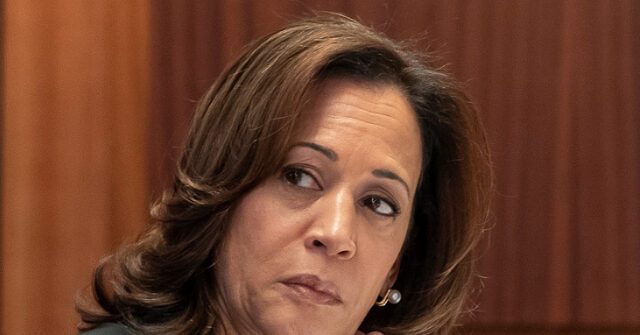Vice President Kamala Harris’s hometown newspaper, the Los Angeles Times, has chosen not to endorse a candidate for the upcoming 2024 presidential election, marking a notable deviation from its usual practice of backing Democratic candidates. This decision is perceived as a slight against Harris, given her ties to the publication and her role as the first female vice president. The Times has a history of endorsing prominent Democrats in recent elections, having endorsed Joe Biden in 2020, Hillary Clinton in 2016, and Barack Obama in both 2008 and 2012. The decision not to endorse comes amidst a political landscape that has seen significant shifts, highlighting the complexities faced by the editorial board and the implications of its owner’s influence.
The report of the decision not to endorse comes from Semafor, noting that Dr. Patrick Soon-Shiong, the owner of the Times, was behind the editorial board’s surprising stance. Executive editor Terry Tang informed staff that the paper would refrain from making any endorsements during this election cycle. This lack of endorsement signals an unprecedented step for a paper that has traditionally engaged in the electoral debate by offering endorsements in critical races. However, the editorial board has stated that it endorses selectively, focusing on races deemed most consequential.
Dr. Patrick Soon-Shiong’s previous interventions regarding endorsements raise questions about the autonomy of the Times’ editorial board. In the lead-up to the 2020 election, the board intended to endorse a candidate in the Democratic primary but was overruled by Soon-Shiong, who asserted that no endorsement would be made at that juncture. In that election cycle, the Times ultimately endorsed Joe Biden for the general election, demonstrating a disconnect between the board’s intentions and the owner’s decisions.
The historical context of the Times’ endorsement practices is also significant. Following Richard Nixon’s re-election and subsequent resignation due to the Watergate scandal, the Times ceased its candidate endorsements for almost three decades, reflecting the paper’s cautious approach to alignments with controversial figures. It was only in 2008 that the Times resumed its endorsement tradition, showcasing the evolving relationship between the editorial board and the political dynamics of the time.
As the 2024 election approaches, the implications of the Times’s decision not to endorse are manifold. For Kamala Harris, this lack of support can be seen as a diminishing of her stature within her own community and may signal uncertainties regarding her position as a candidate given her close affiliation with the current administration. Political analysts may interpret this situation as an indicator of shifting allegiances among influential media outlets that can impact public perception and narrative leading up to the election.
In essence, the Los Angeles Times’s decision not to endorse a candidate for the upcoming election encapsulates a broader trend of editorial hesitations and challenges faced by media entities in the current political climate. With ownership exercising its influence over editorial decisions, and the historical backdrop providing context, the decision marks a significant moment for political discourse as it unfolds in the run-up to 2024. The ramifications of this choice could shape not only electoral outcomes but also the relationship between political figures and media outlets in the contemporary political landscape.

